Despite the impact of the global spread of COVID-19 and changes in the international situation, the global recovery and the establishment of a "new normal" is gradually made possible. How can we achieve equitable recovery and low-carbon development aimed at carbon neutrality under the new normal of pandemic prevention and control? How will the cultural industry address cross-cultural communication? ICCSD held the Third Meeting of the First Advisory Committee on April 28, and the advisory members offered various suggestions and expressed their views.
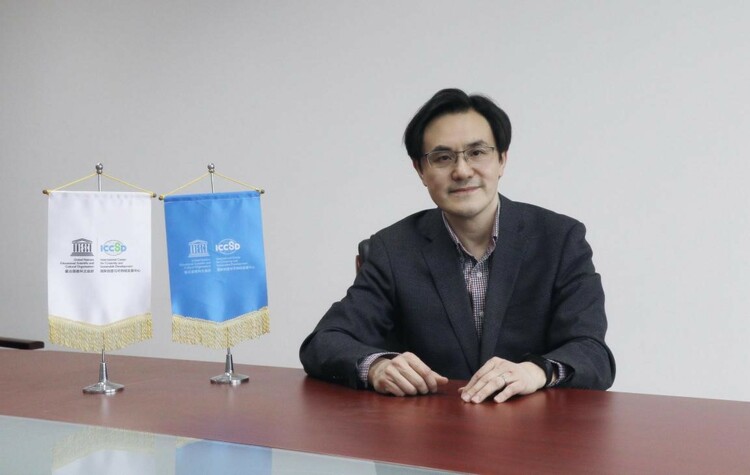
Mr. Xiao Lan, Executive Director of ICCSD
With the gradual recovery of economic production and social activities, we must once again examine the relationship between "development" and "the environment", and the relationship between "development" and "equity". Chinese cities and enterprises are undergoing major industrial restructuring while trying to repair the relationship between production and life and the environment. Meanwhile, we can also see that the pandemic has varying impacts on different social groups, geographical regions and economic sectors. The International Labor Organization's report shows that workers in tourism, retail and manufacturing have been hit hard by the pandemic, with women and young people seeing a particularly sharp drop in income, while workers in the informal economy face greater barriers in applying for grants and benefits. That's why we should talk more about an inclusive, sustainable and resilient people-centered recovery. ICCSD hopes to fully play its role as a bridge of cross-cultural communication, better publicize and promote the concept of creative sustainable development, and enhance exchanges in creative economy and sustainable development.
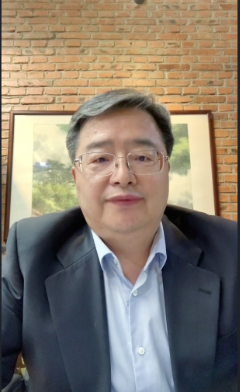
Mr. Mei Song, Chief Expert of the Beijing Academy of Cultural Industry Development
Beijing, which is set to become an international science and technology innovation center and global cultural and creative hub, is drawing a new blueprint for the development of the creative industry, to ensure the prosperity of the cultural industry and promote the realization of the Sustainable Development Goals (SDGs) as scheduled. By vigorously exploring successful experience and implementing green and low-carbon measures, Beijing successfully hosted the 2022 Olympic and Paralympic Winter Games, fulfilling the promise of presenting a "Green Olympics" and "High-Tech Olympics" to the world. By virtue of the integration of culture and science & technology, Beijing will strengthen the connection between digital technology and creative industries, further promote new business forms of culture, optimize public cultural services, and enhance citizens' cultural experience. Meanwhile, the city will enhance protection, transformation and reuse of old industrial sites such as factories, extensively promote energy conservation and emission reduction to contribute to the path of exploring sustainable development. For example, the century-old Shougang Park has become a landmark and model of urban renewal.
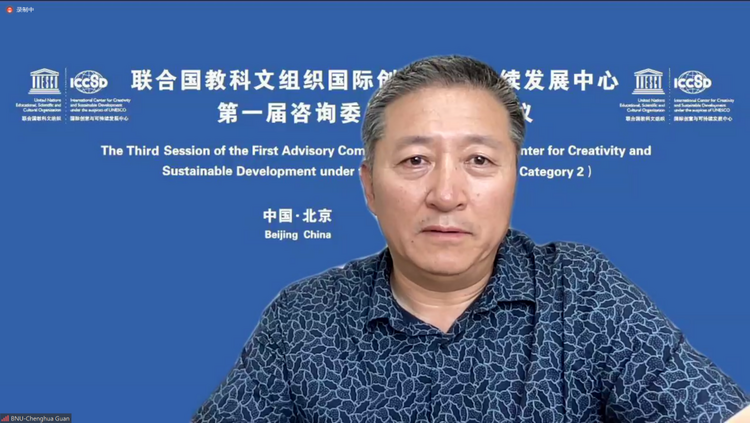
Mr. Guan Chenghua, Professor of Beijing Normal University (BNU) and Dean of China Institute of Innovation and Development, BNU
In terms of the development model, green economy abandons the previous socio-economic growth model of mankind and instead adopts an all-new path for the well-being of future generations, focusing on whether it can achieve long-term effective growth or whether the goal of prosperity can be passed on between generations. Contrary to the direction advocated by the mainstream of economics research, its realization path is set to urgently require strong policy intervention of governments. A real productivity leap and sustainable development require all countries in the world to act in concert, accelerate the revolutionary breakthrough and progress in energy technologies, such as vigorous development and popularization of fossil energy alternative technologies. Meanwhile, they need to explore the integration of creativity, new ideas and concepts of design into urban renewal, empower and promote high-quality green transformation and urban renewal, so as to build a better future for cities.
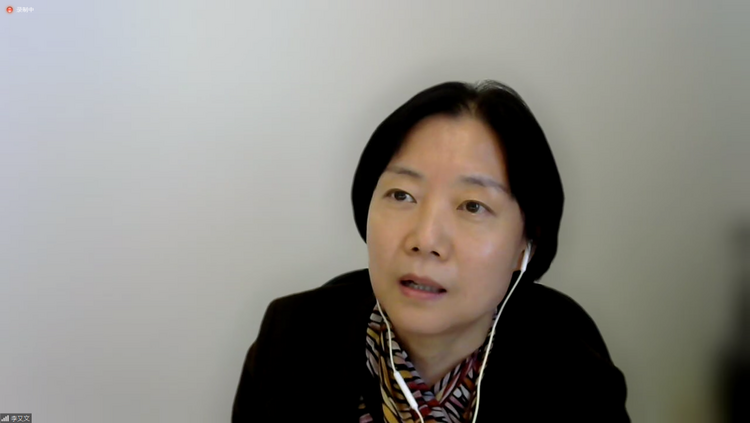
Ms. Li Youwen, Associate Professor of Beijing Foreign Studies University (BFSU) and Vice Dean of Academy of Regional and Global Governance, BFSU
Effective measures are urgently needed to prevent and control plastic pollution in oceans and protect marine life and biodiversity. To this end, professional organizations should join hands with media platforms to raise public awareness of marine protection, popularize the consequences and environmental hazards of excessive use of plastic, and call on more people to be builders and promoters of marine ecological civilization. In pursuit of industry profits, the petrochemical industry produces all kinds of plastic products, which indirectly leads to the aggravation of pollution. Therefore, relevant enterprises should shoulder the social responsibilities of strengthening marine ecological protection and pollution control. In addition, cultural diversity cannot be separated from technological considerations, and we will see what culture will look like in the future as Information and Communication Technology (ICT) and Artificial Intelligence (AI) continue to shape and map new landscapes of work and communication.
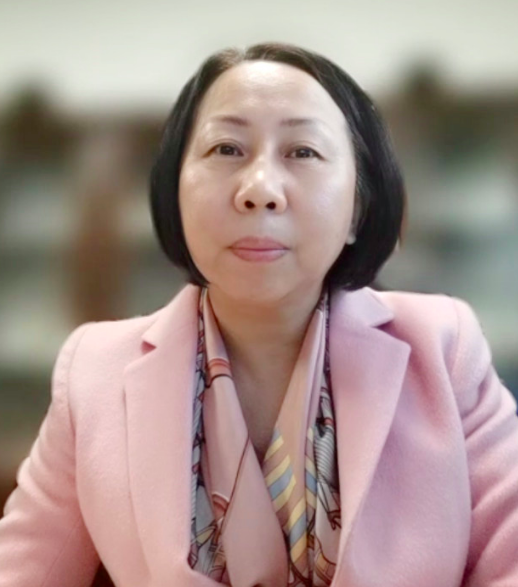
Ms. Wen Chunying, Dean for School of Foreign Studies, Communication University of China, and Director for the Center of City Branding
In the era where all can be connected and all can be media, we can first try to promote people's awareness of sustainable development through new paths of media convergence. For example, we can co-produce multi-lingual UGC (user-generated content) public welfare videos to make the concept more accessible despite a limited budget. Secondly, we should enhance dialogue and exchanges among civilizations through culture, treat culture as an asset with inputs and outputs, deepen exchanges between countries, and accelerate the flow of ideas. Thirdly, by raising awareness and boosting cultural integration, we can facilitate profit-driven implementation at the industry level. It is necessary to urge various social classes to embrace sustainable development from different perspectives, unite more stakeholders, let youths, teenagers, workers and even the whole society act together.
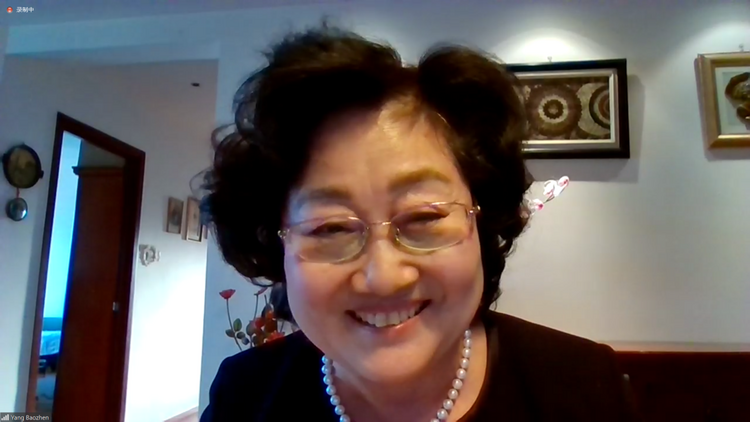
Ms. Yang Baozhen, Expert for International Projects of China Women's Development Foundation and Former Chinese Consul to France
China aims clearly to have carbon dioxide emissions peak before 2030 and achieve carbon neutrality before 2060. The "dual carbon" goals pose a severe challenge to the existing carbon-driven economic development model but bring unprecedented opportunities for industrialization and urbanization. Technological innovation is crucial to achieving carbon neutrality, and promoting the role of solar energy and other alternative energy sources as the backbone is seen as central to balancing environmental protection and economic development. As international clean energy cooperation projects continue to progress, low-carbon economic policies such as the launch of the carbon market and the issuance of green consumption vouchers have enhanced the tendency towards establishing green finance, and low-carbon shared lifestyle has quietly emerged among urban residents. Multiple factors will contribute to the early realization of equitable recovery aimed at carbon neutrality.
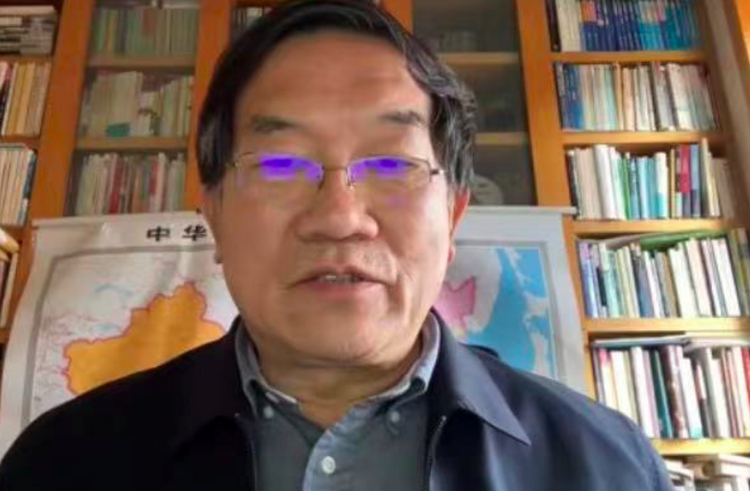
Mr. Zhang Xiaoming, Researcher of Chinese Academy of Social Sciences (CASS) and Vice Director of China National Center for Culture Studies
As the cultural industry is gradually embracing low-carbon development, China has basically completed infrastructure construction for cultural tourism, and the whole industry is entering a new stage of content construction. Statistics from the Development Research Center of the State Council show that the four major low-carbon cultural industries, namely news & information services, creative design services, cultural consumption terminal production, and content creation & production, have, with a high development speed, created a new "green" engine for the development of the cultural industry. The social equity theory of Keynesian economics calls on us to formulate policies for the cultural industry and give more consideration to employment issues and job availability, rather than simply using GDP economic indicators to measure the scale of the cultural industry. As the pandemic steers a large number of social needs online and the digital transformation of the cultural industry is accelerating, the amplification effect of the Internet enables people to access more opportunities for cross-cultural communication. Meanwhile, social media increasingly affect information acquisition, and big data algorithms build information cocoons to dominate people's knowledge and understanding of the world by constantly sending personalized information. Whether the Internet and digital cultural industry play a positive or negative role in cross-cultural communication needs to be treated dialectically from multiple perspectives.
On April 28, 2022, ICCSD held the Third Meeting of the First Advisory Committee in Beijing. A total of 11 guests from different countries attended the conference online and delivered keynote speeches.